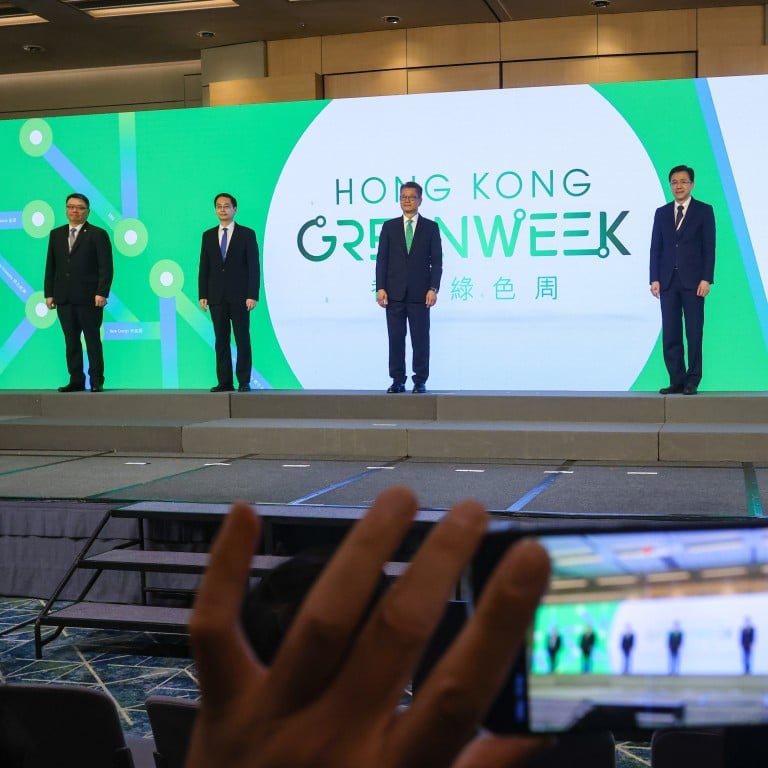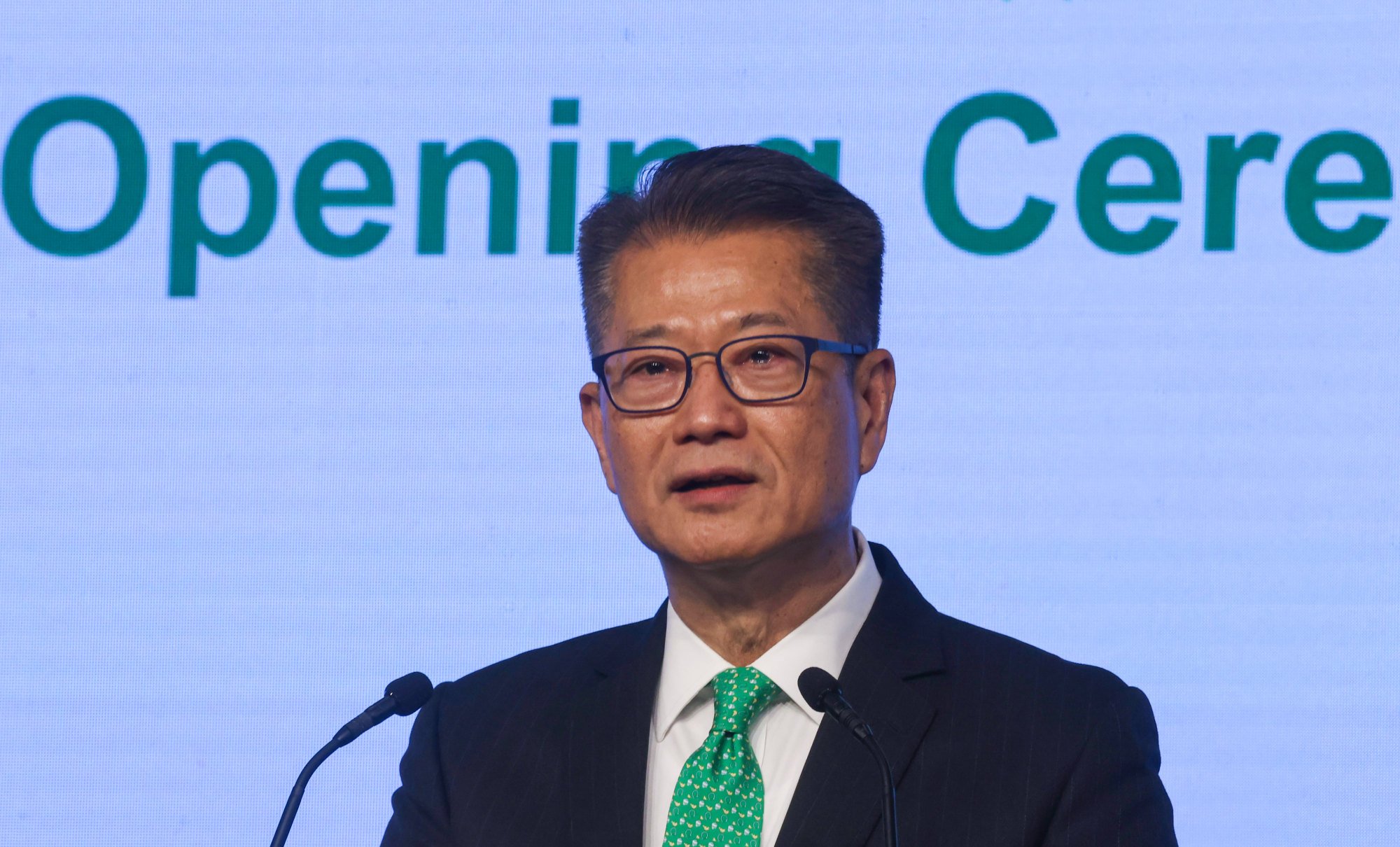
HK Green Week: Hong Kong primed to lead region in green technology development, Paul Chan says
- The Hong Kong Green Week, which began on Monday, is expected to attract some 5,000 attendees from dozens of jurisdictions
- A series of sustainability-themed discussions, exhibitions and events will be held during the course of the Green Week
Hong Kong, a city with green technology and environmental finance ambitions, is pushing ahead with its efforts to deliver products and solutions to domestic and international markets, as demand grows exponentially.
A series of sustainability-themed discussions, exhibitions and events will be held during the Hong Kong Green Week that began on Monday and is expected to attract some 5,000 attendees from dozens of jurisdictions.
“In last year’s government budget, I proposed to build Hong Kong as an international centre for both green technology and finance,” Hong Kong’s Financial Secretary Paul Chan Mo-po said at the summit. “Hong Kong should aspire to be a leading force contributing towards sustainable development in China, the wider region and the world, which will also bring about huge business opportunities.”
Global investment in green energy and energy transition technology, amounting to US$1.7 trillion last year, has surpassed that spent on oil and gas exploration and production, he noted.

Hong Kong’s edge lies in its ability to finance companies ranging from start-ups to established companies, thanks to its substantial capacity to offer professional services including green projects certifications, Chan said.
“Besides, Hong Kong’s research and development capability is well-recognised, with innovations by our entrepreneurs and universities having already achieved commercial success in some overseas markets,” he said. The city’s easy access to the mainland’s industry supply chain has helped quickly transform innovations to the pilot stage of development, he added.
Hong Kong prepares transition taxonomy to boost green finance hub ambitions
Some 40 Hong Kong, mainland China and overseas greentech start-ups will exhibit their technology and products at the summit, including green agriculture and carbon capture and storage solutions.
Ma Jun, chairman of the Hong Kong Green Finance Association, said Hong Kong’s domestic decarbonisation market opportunities are worth some HK$5 trillion (US$639 billion).
“Our infrastructure, such as the airport, ports and thousands of buildings all need to be upgraded and retrofitted for climate mitigation and adaptation,” he said. “We should not only rely on imported products and technology, but also incubate our local enterprises to meet the needs.”
Some 100 of the 1,700 or so tenants of Hong Kong Science and Technology Parks Corporation, the government industry parks operator, are focused on green technologies, said its chairman Sunny Chai Ngai-chiu.
Several HKSTP start-ups, including those founded by scientists at City University of Hong Kong and University of Hong Kong, have achieved early commercialisation successes.
They have deployed technologies that can improve buildings’ energy efficiency by half, slashed the emission of greenhouse gases produced during lithium-ion batteries production by up to 40 per cent and by up to 80 per cent during recycling, and have used 3D-printing technology to increase the survival rate of corals in warming oceans by 98 per cent, Chai noted.
Hong Kong is also well-placed to tap opportunities in the wider region, said Hong Kong Monetary Authority CEO Eddie Yue Wai-man, noting it is estimated that Asia-Pacific will require US$66 trillion of climate investment over the next three decades.
“As Asia’s leading international financial centre and green finance hub, Hong Kong has been channelling international investments to sustainable projects in Asia to support the region’s green transition,” he said in a statement. “More than one-third of Asia’s green and sustainable bond issuances are arranged in Hong Kong.”
The HKMA and the International Finance Corporation will co-host the “Climate Business Forum: Asia-Pacific” on Tuesday and Wednesday. The anchor event of the Hong Kong Green Week is expected to attract 300 top decision makers in global business and finance, Yue said.
With Asia accounting for 80 per cent of the world’s clean energy sector manufacturing investment and China’s leading position in the export of electric vehicles, lithium batteries and solar power equipment, Hong Kong also has the potential to develop greentech into a new source of economic growth, said Wang Jinnan, an academic of the Chinese Academy of Engineering and chairman of the Chinese Society for Environmental Sciences.
Hong Kong greentech researchers should apply for grants from the mainland government, which has identified five areas and 24 key technologies that will be the focus of state support, he added.

